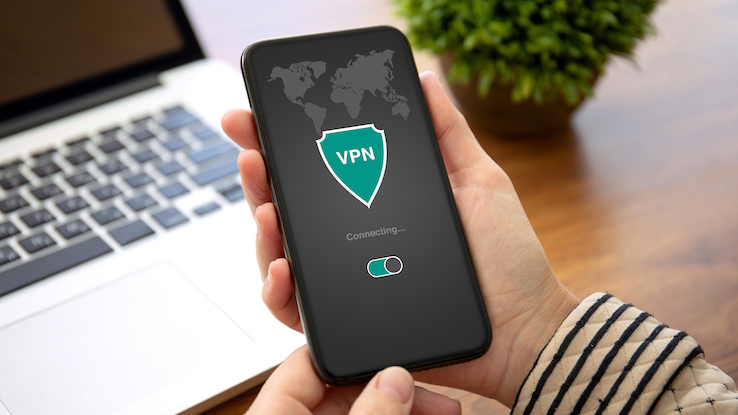VPN vs. Proxy Server — Which Is Right For You?

VPNs and proxy servers may seem like technical things for the IT department at your office to set up and manage, but, as it turns out, they could play a key role in your personal security online, too. While most people don’t have a huge corporate computer network at home, more consumers are taking steps to protect their own computers with commercial-level security systems.
As people turn to the internet to handle increasingly sensitive processes like filing taxes, banking and attending telehealth appointments — and share highly personal information in the process — there’s a greater need for cybersecurity at home. But what level of security is right for you? VPNs and proxy servers are two different types of security protocols you can utilize. Here’s what you need to know about each to determine whether one will work better for you.
What Are VPNs and Proxy Servers?
A VPN is a virtual private network. It allows you to conceal your IP address and surf the internet securely and anonymously from anywhere in the world. Businesses often use VPNs to allow remote employees to access and send company information along a network of private connections.
Individuals often use VPNs to securely send and receive data online, especially when the only alternative would be to use an unsecured public Wi-Fi connection, which hackers could easily access.
When you send and receive data on the internet, the information goes from your server to another server, and IP addresses help the information go to the right place. If you send a virus to another server, that computer, website or network of computers can stop functioning properly. If you receive a virus or some other form of malware from another server, your computer or network can face problems.
Proxy servers act as an intermediary. Information coming and going online travels through the proxy server before going to the actual server it protects. The proxy server stops anything dangerous or suspicious from making its way to the main server. A proxy server can protect a single computer, but they’re more commonly used to protect entire networks. Websites can also have proxy servers that protect their servers from potential attacks on users. Some websites have proxy servers to keep the information you send while using them secure, and they can even hide users’ IP addresses.
Why Do You Need VPNs and Proxy Servers?

Any time you use the internet, you’re sending and receiving data. That transmission of data can be public or private. Without taking extra security measures, the information you view and send on the internet is likely either visible or vulnerable to people who know how to access it.
That’s one reason why there’s been a rise in ethical hackers who talk to individuals from their home security cameras or send people videos from their home security systems. The hackers say that they aim to show people how vulnerable some of the most sensitive information they transmit over the internet can be. VPNs and proxy servers can help protect this information.
How Do VPNs and Proxy Servers Differ?
VPNs and proxy servers have a key similarity. They both create an added layer of protection when you’re using the internet by diverting information to a secure third party rather than allowing a direct connection from the internet to the computer or the network it’s protecting. They both hide your IP address, which allows you to stay anonymous online. They also allow for viewing location-restricted entertainment.
The key difference lies in when the protection happens and the level of protection you receive. A VPN provides a completely secure connection to the internet. Every bit of data you send and receive through a VPN not only shows up to the public as coming from a different IP address, but it’s also encrypted. Even if the information you transmit through a VPN is intercepted, a hacker won’t be able to make sense of the information unless they know the complex de-encryption procedure that’s unique to your VPN.
A proxy server only offers protection when you use the specific websites and apps that use the proxy server. Many of the websites you use may already protect you with their own proxy servers, and some consumers set up proxy servers of their own for websites that handle especially sensitive information.
Do You Need a VPN or a Proxy Server?

If you want a greater level of security when surfing the internet, both a VPN and a proxy server can help. A VPN provides more comprehensive protection than a proxy server because it encrypts the information you send and receive rather than merely diverting it to another server. Unless you have specific security needs for specific websites and apps, a VPN is often the better choice for a personal computer.
There’s a variety of companies that offer VPNs and proxy servers on a subscription basis. There are also free VPNs and free proxy servers. Before choosing a company, be sure to check reviews on third-party websites and from technology industry media.
Any company that provides a VPN or proxy server for you can access your sensitive information. Most companies make the ethical choice not to access your information, but others sell it to third parties. They typically sell aggregated information describing customer habits rather than personal information about individuals. Be sure to do business with a reputable company that won’t become a security risk to you.
Sometimes, free proxy servers have slower connections, and some websites block them. Setting up your own proxy server can also be difficult if you’re not used to using one. VPNs are usually more expensive than proxy servers when they’re not free.
Proxy servers are better for anonymity at a specific time on a particular website, but VPNs offer complete anonymity whenever you browse. Both VPNs and proxy servers provide more security than surfing the internet without any protection, but choosing a reputable company that won’t make you vulnerable is essential.





